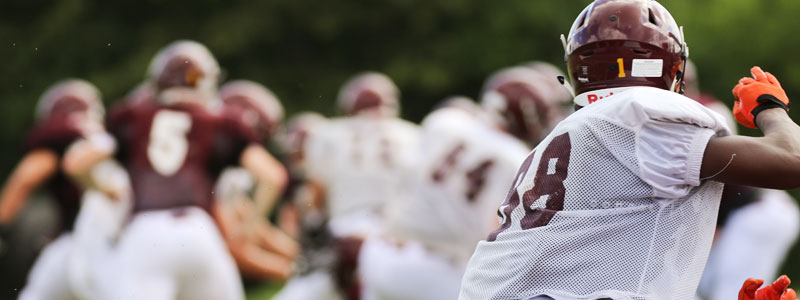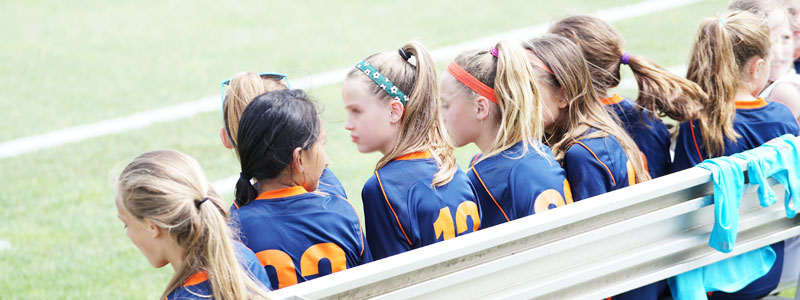When Athletic Injuries May Be Medical Malpractice
While watching the World Series, the Olympics, or really any major sports event, it’s easy to take for granted the immense effort each athlete has put forth to play their game. Years of training, conditioning, and learning to out-think the competition are behind every no-hitter and gold medalist. In addition, many of the most inspirational […]

September 3, 2018

While watching the World Series, the Olympics, or really any major sports event, it’s easy to take for granted the immense effort each athlete has put forth to play their game. Years of training, conditioning, and learning to out-think the competition are behind every no-hitter and gold medalist.
In addition, many of the most inspirational sports stories involve athletes who have recovered or learned to transfer their skills after a debilitating injury. These stories and other dramatic on-field injuries remind us of the highly important behind-the-scenes players who keep our favorites healthy and strong.
Sports medicine and athletic trainers responsible for taking care of athletes bear a large responsibility both before, during, and after the game. The sometimes intense toll strenuous exercise takes on the human body leaves many athletes vulnerable to injury, and it’s these trained professionals’ jobs to prevent the worst from happening.
Sadly, however, we all know of tragic stories arising from sports injuries that could have been prevented with extra care on either the trainer’s or the athlete’s end. When sports injuries are caused by negligence, however, they may be both tragic and a form of medical malpractice.
Possible Malpractice in Sports Injuries

Scientific studies highlight both the theory and practice of taking care of athletes on and off the field. Physicians note the importance of proper pre-participation evaluations, adequate treatment for on-field injuries, and immediate referral to specialists for serious injuries.
Any one of these situations could lead to medical malpractice. It’s especially important for athletes who are minors to be looked after with careful attention, as injuries early in development can have serious long-lasting effects.
Pre-Participation Evaluations
Before joining a sports team, whether in high school, college, or professional leagues, athletes must complete a rigorous physical. During a series of tests, including physical and mental tasks, athletes must establish general health and endurance, as well as return negative results for compromising medical conditions such as cardiac arrhythmia or cardiomyopathy.
Doctors or trainers who conduct physicals for athletes must perform their examinations up to the applicable standards of care, meaning they are responsible for informing the athlete of any health conditions that may affect their ability to play: informing them and their coach of the risks, if any, associated with intense physical exertion.
Medical professionals who fail to act according to the standard duty of care may be held liable for medical malpractice in the event of an injury that could have been prevented by someone else performing at the applicable standards.
On-Field Injury Evaluations and Treatment
One injury common across almost every contact sport is the concussion. Athletic leagues pour tons of resources into research to better understand, prevent, and treat players who suffer repeated concussions. Athletic trainers on the field should be prepared to diagnose concussions as well as other mild to severe injuries and execute the right plan of action for the injured player as soon as possible.
It is ultimately the employer’s responsibility for the actions of its medical staff. So, like any hospital, sports teams and schools may be guilty of medical malpractice if their trainers negligently send athletes back into the game who are suffering from a diagnosable injury, such as cervical fractures or concussions.
Referral and Follow-Up with Specialists
Though athletic trainers are held to relatively high standards of care, they are not ultimately responsible for the wellbeing of every athlete’s physical condition because they can’t be specialized in every possible injury type. However, they may still be responsible for referring the athlete to a more highly experienced physician for follow-up examinations.
The duty of the trainer in this case is to know when an injury may be serious, even if he or she can’t identify the exact cause. If they fail to respond to a player’s injury with an appropriate referral and the condition proves to be serious, the athlete may be able to pursue a medical malpractice claim.
Indiana Medical Malpractice Attorneys Defending Athletes’ Rights
Whether in the first game of their young lives or in the peak of their career, the athletes who capture our attention deserve the full attention of medical professionals when they’re hurt. Players who suffer injuries or complications from injury treatment due to a physician’s negligence likewise deserve justice and compensation for what are often massive medical bills.
Hensley Legal Group’s medical malpractice attorneys are here for Hoosier athletes. If you or someone you love has been hurt in a sporting event and has been treated with negligence by a doctor, you may have a medical malpractice case. Contact us online or call us today to start a free conversation with our lawyers about what you can do to take action.